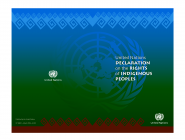After the uprising of 1991 and the withdrawal of Baghdad regime from the secured no-fly region in northern Iraq, the AAS-I and other non-governmental organizations (NGOs) had a direct and effective role in the reconstruction of the villages ruined and destroyed in 1970s and 1980s in Saddam Hussein's notorious Al-Anfal campaign.
About
Charitable, humanitarian, non-profit organization, has a financial and administrative independence of a non-governmental and not linked to any political entity, and public utility and operating under the principle of voluntary collective action, to achieve humanitarian goals through development programs and capacity building, relief, education and culture
At the very beginning of the formation of the regional government in 1991, the government was lacking in the appropriate material and technical skills necessary to manage all the official public utilities in the region. This was nowhere more clear than in the entire educational process in all its stages. In 1992 when the regional parliaments approved the educational rights for our Assyrian people using our mother language, the duty of supporting this strategic project became the most important priority for our organization.
The Gulf War, international sanctions, the uprising in north, and the neglect of the Saddam's regime severely affected the region's economy. The hardest hit the poor families. It was very difficult for the secondary graduates to continue their university studying, especially for those students who lived far away from the cities with universities.
Since the establishment of the Society in 1991, the Aid Department participated greatly in relieving the agony of our people, particularly the most remote villages. Forming specialized mobile health units, the Aid Department performed regular visits to the villages most in need of health and medical care. These units investigated the different areas and provided medicine and health services at no cost to the poor villagers.
The Aid and Relief Department was the foundation that the Society was built upon, the direct reason for first forming the Society in 1991.
After the First Gulf War the Aid and Relief Department performed periodic programs to help needy people in accordance with the Department's capabilities and outside support received for this purpose, in addition to the aid provided for the needy people in accordance with the requests to help in bearing the costs of treatments and surgical operations.



